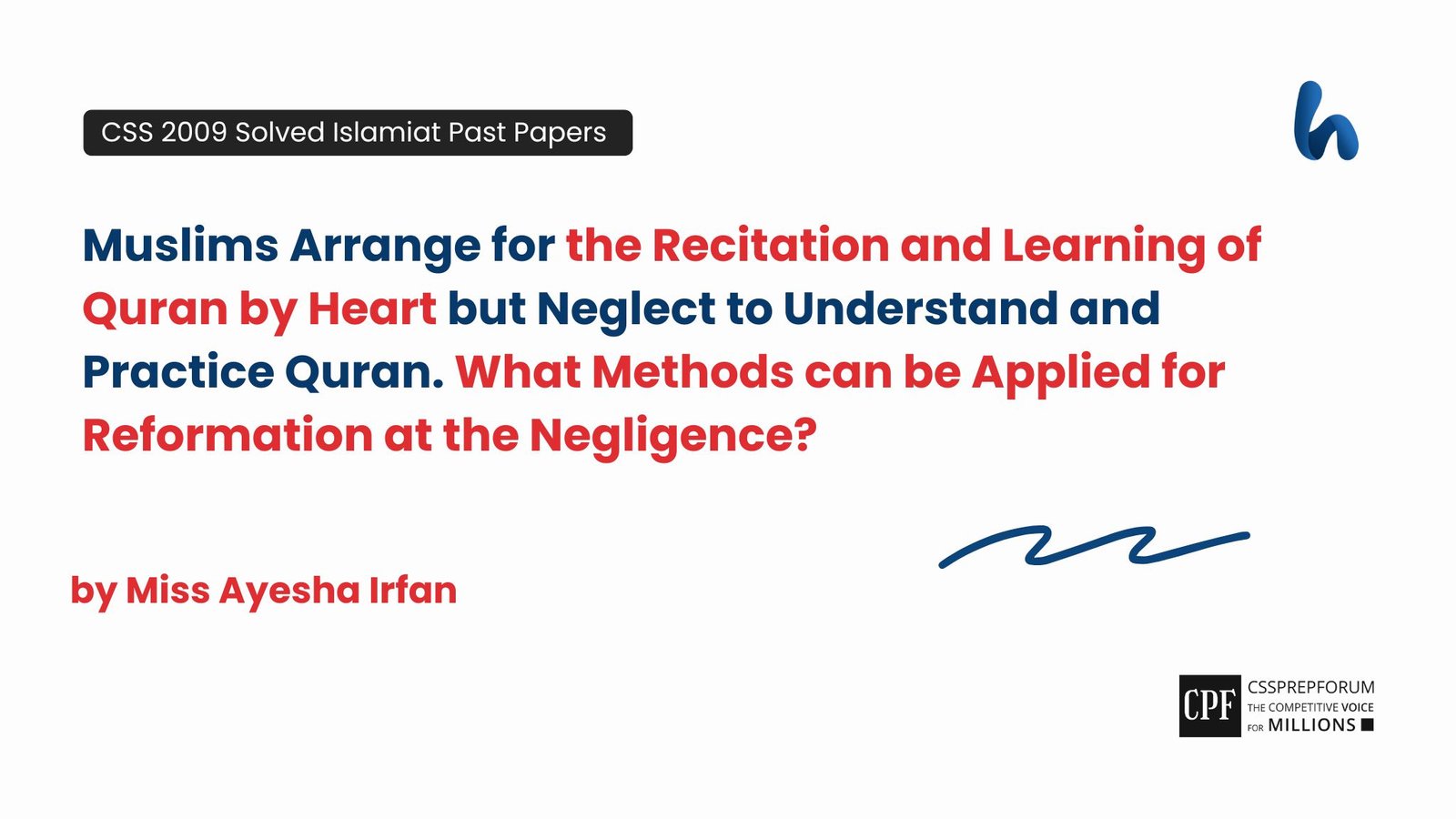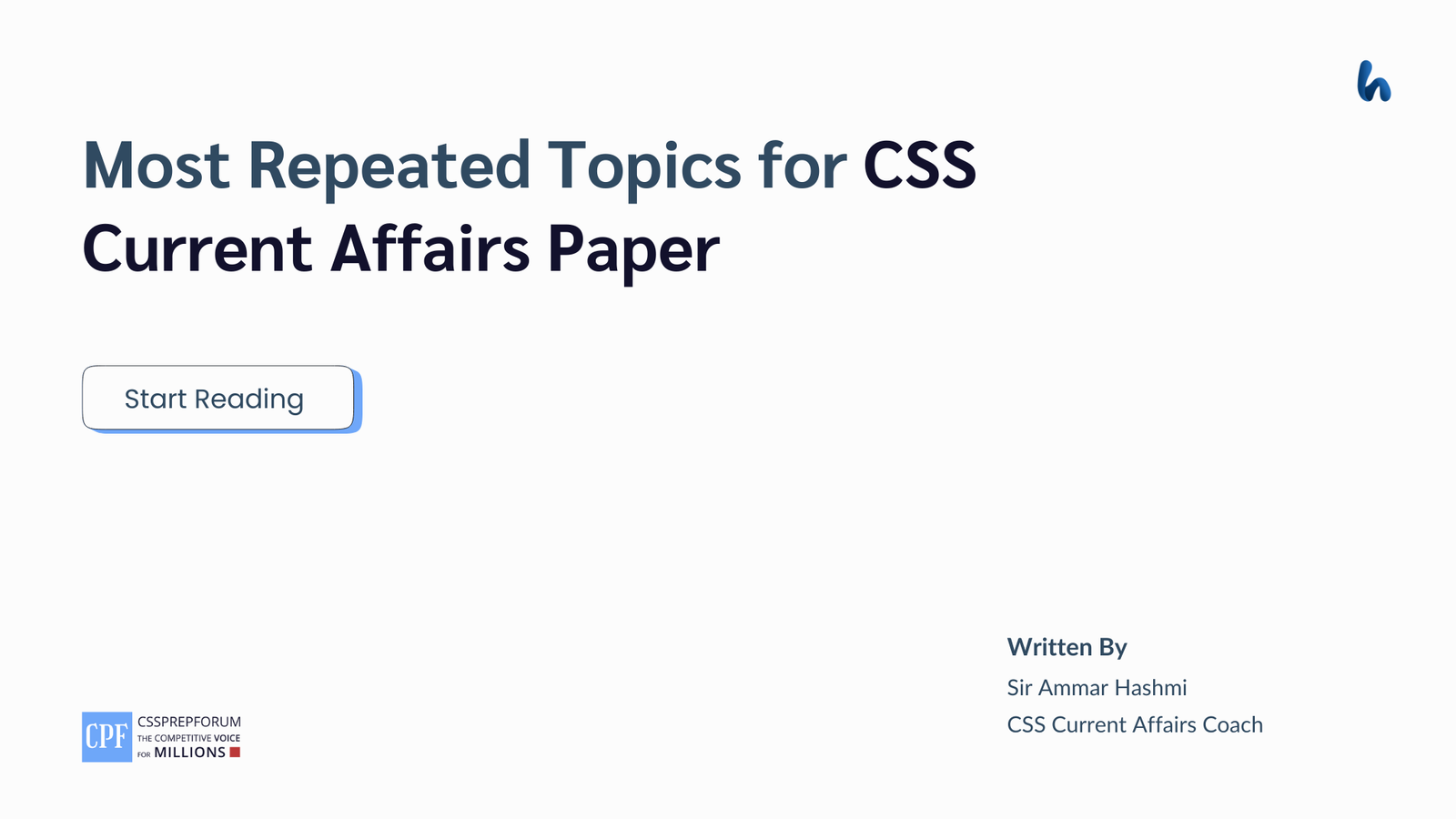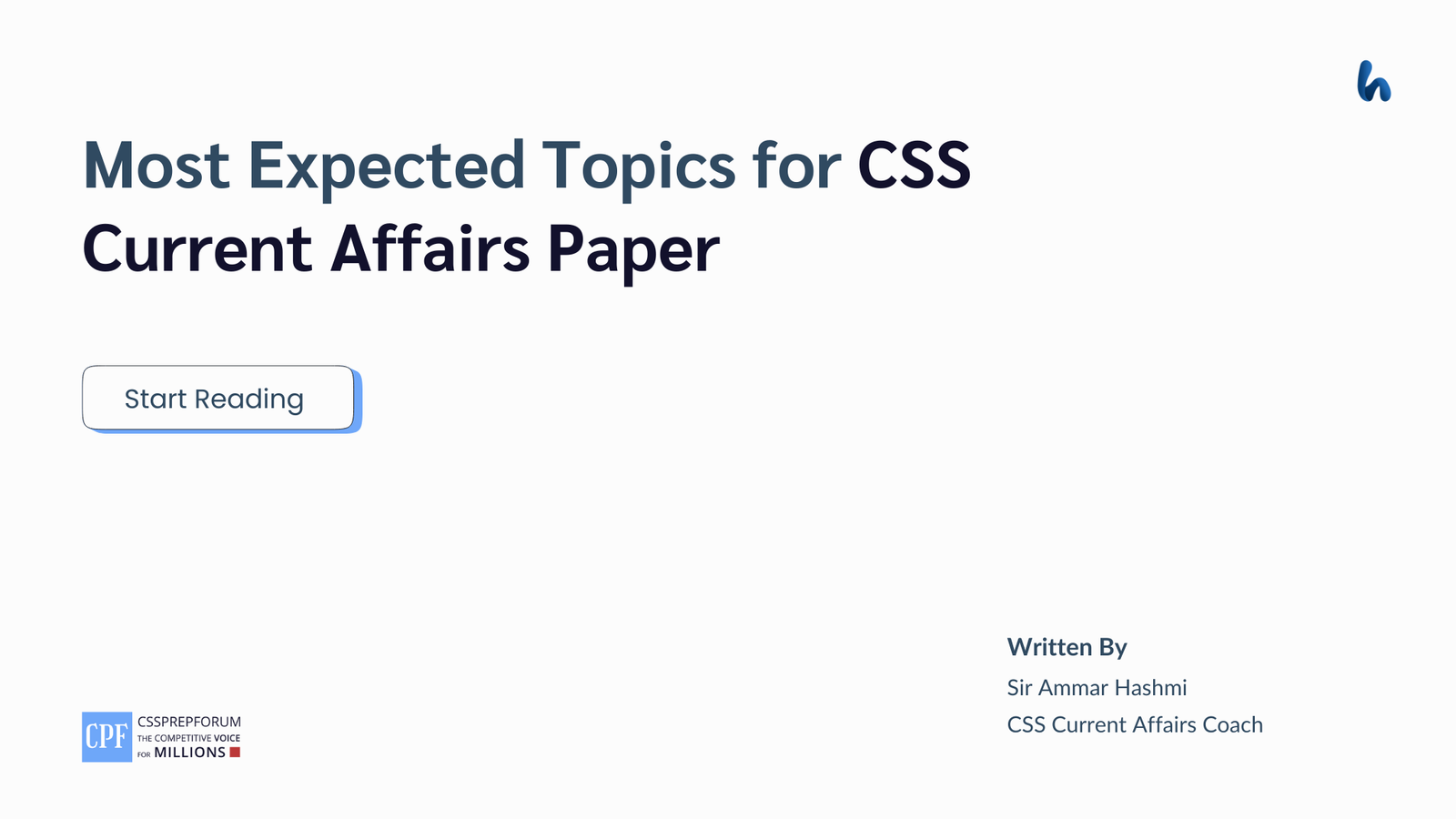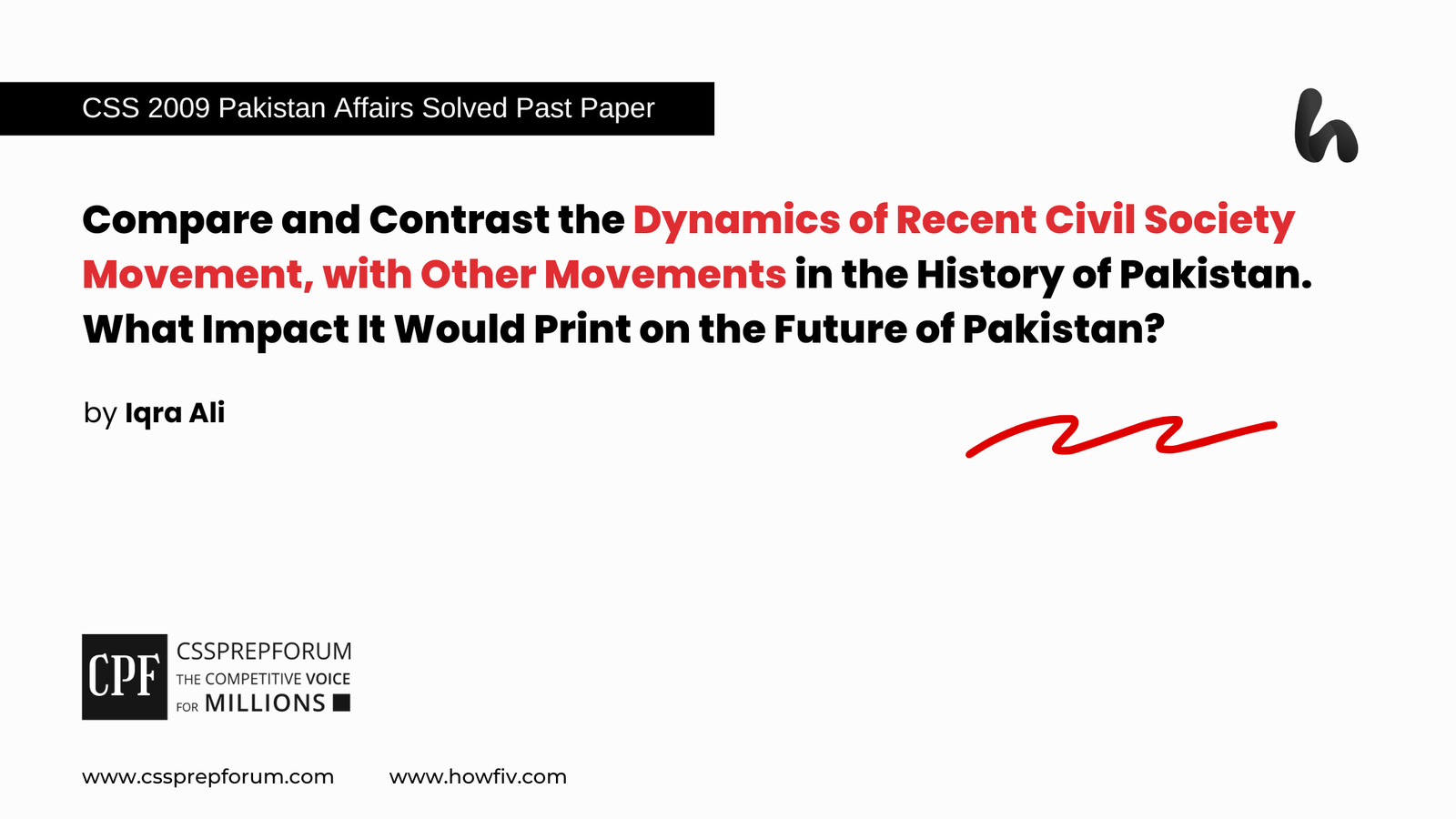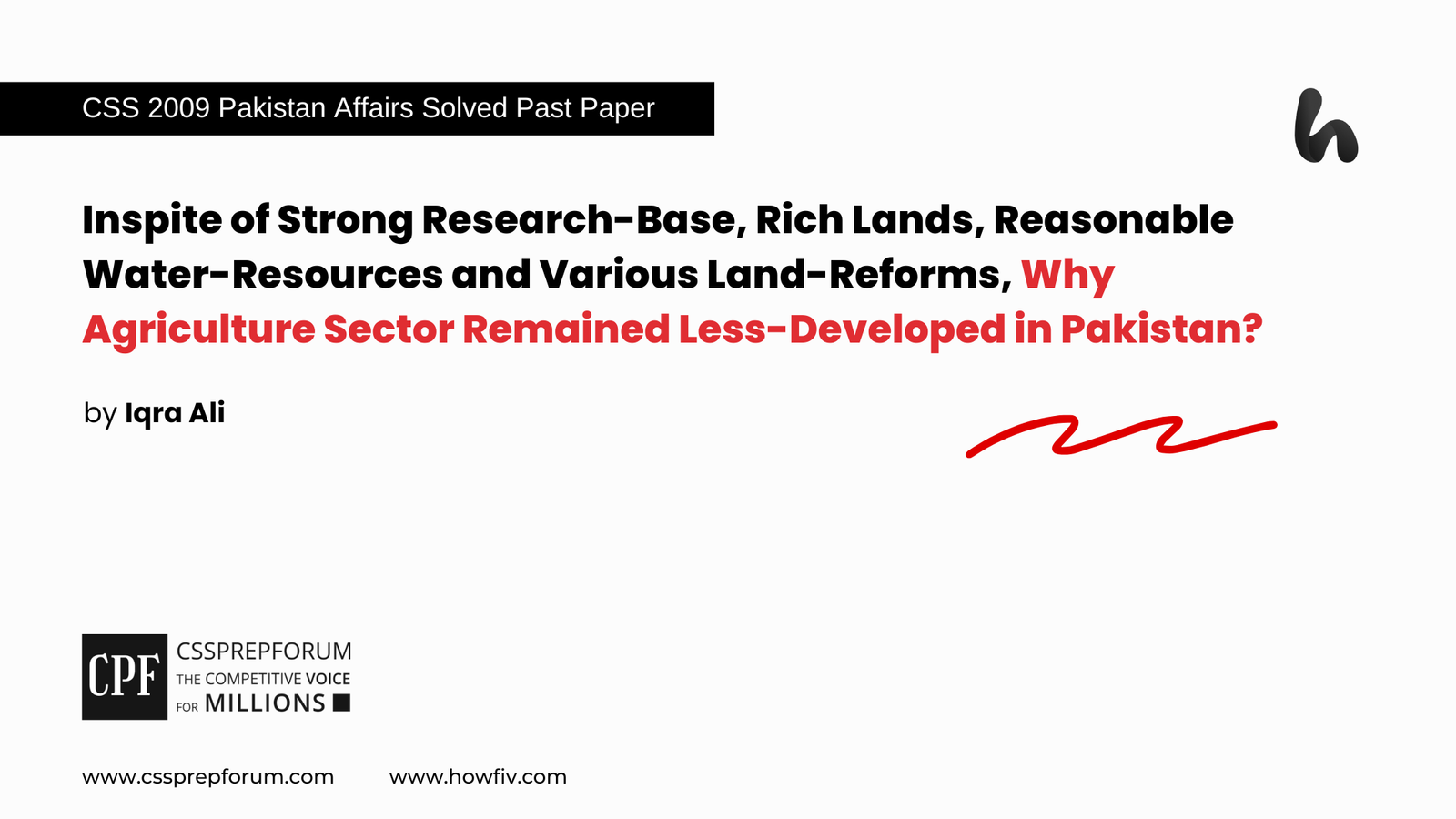CSS Solved Political Science Past Paper 2021 | Ibn e Khaldun while acknowledging the external factors, emphasizes more on the internal systemic factors as decisive for the decline of states. Elaborate.
The following question of Political Science is attempted on the same pattern, taught by Sir to his students, scoring the highest marks in compulsory subjects for years. This solved past paper question is uploaded to help aspirants understand how to crack a topic or question, how to write relevantly, what coherence is, and how to include and connect ideas, opinions, and suggestions to score the maximum.

Question Breakdown
In this question, the examiner has asked about Ibn e Khaldun’s theory of the rise and fall of states. So, at first, you have to provide an introduction. Then, In the last you have to discuss in the answer the applicability of Ibn e Khaldun’s philosophy in the modern political and social dynamics along with critical analysis and conclusion. In the final section of your response, you must discuss the relevance of Ibn e Khaldun’s philosophy in modern political and social dynamics, as well as its critical analysis and epilogue.
Outline
1-Introduction
2-Ibn e Khuldun’s concept of Asabiyah
3-Cyclic Theory of rise and fall of civilizations
4-Role of internal systemic factors in the decline of states
- ✓Wealth
- ✓Corruption
- ✓Societal collapse
- ✓Economic stagnation
- ✓Military Decline
5-Role of Ibn e Khaldun factors of rise and fall of state in the contemporary world
6-Criticism on Ibn e Khuldun’s theory on declining of the state
7-Conclusion

Answer to the Question
Introduction
Ibn Khaldun, an Arab historian and philosopher, is regarded as one of the greatest minds of the Islamic Golden Age of the 14th century. His theory of the rise and fall of states is possibly the most enduring legacy among his numerous contributions to the fields of history and social science. Ibn Khaldun mentioned the rise and fall of civilizations along with factors responsible for that in his masterpiece, “The Muqaddimah,” that a complex array of internal social, economic, and political factors, rather than external ones like geography or climate, primarily determine whether a state succeeds or fails. Moreover, he emphasized the significance of institutions, economic growth, and sound governance in a state’s success while also highlighting the roles played by political corruption, social unrest, and economic stagnation in a state’s decline.
Ibn e Khuldun concept of Asabiyah
Asabiyah is the Arabic word for social connection and solidarity. The idea of Asabiyah was put forth in this concept by Ibn e Khaldun in his 1377 book Muqadama. He explained how Asabiyah—the social solidarity and bond that connects people—had been crucial to the rise and fall of states and civilizations. He described its function in his various theories, including Social Solidarity, Rural and Urban Theory, and Social Change, for that reason. According to him, in Rural and Urban Theory, this bond was strong among the rurals (Bedouni), as a result of their shared history of living in a tribe or clan and their upbringing in a challenging and harsh environment. Asabiyah (Haziri) was lacking in urbans compared to Bedouni. That was because they led contented and carefree lives. Apart from that, they preferred living alone to being part of a family. Similar to this, he asserted in the theory of social change that everything, for instance, social, economic, political circumstances, etc., primarily affects society, and that Asabiyah is one of the major things that was affected by it. Additionally, he made a connection between Asabiyaha and this theory and claimed that “wealth and corruption” weaken Asabiyah. However, Asabiyah is strengthened by “Religion and good governance.”
Cyclic Theory of Rise and Fall of Civilizations
Ibn e Khaldun was an Islamic political theorist who lived in the 1400s. He had an impact on economists, historians, sociologists, and philosophers. He proposed that dynasties, empires, civilizations, and states rise and fall in cycles. The cyclical theory held that sovereign powers were born, matured, and died like living things. Umran and Asabiyah helped Ibn Khaldun explain this pattern. The cyclical theory of sovereign power’s birth and death is based on umran and asabiyah. Other cyclical theories focused on the rise and fall of sovereign power and were used by Arnold Toynbee, Oswald Spengler, Giambattista Vico, and Sima Qian. Ibn e Khaldun’s cyclical theory will be compared to these four theories.
According to Ibn e Khuldun, Asabiyah is a 120-year cyclic process. Asabiyah grows in the first 40 years, peaks in the next 40, and declines in the last 40. This cycle continues until the end of the world.
So, Ibn Khaldun’s cyclical theory explains why the Ottomans, unlike many strong dynasties in Anatolia, took over and replaced states and empires as a simple beylik (principality), grew into an empire, and then fell apart. Stowasser regarded Ibn e Khuldun as the father of social sciences as a result of his opinions and findings.

Role of internal systemic factors in the Decline of States
In his magnum opus, Muqaddimah, Ibn Khaldun proposed a history theory that examined civilizations’ rise and fall from social, economic, and political perspectives. Ibn e Khuldin acknowledged external factors but stressed systematic internal factors as decisive for state decline.
While Ibn Khaldun acknowledged the role of external factors like natural disasters, invasions, and epidemics in state decline, he believed that internal factors were most important. The main internal factors that caused states to decline were:

- ✓ Wealth
He believed wealth was the main cause of state decline. All evils were caused by wealth lust. Plato promoted communism of private property because wealth causes unrest and destruction. Ibn e Khaldun holds similar views because wealth is the root cause of weak Asabiyah in society.
- ✓ Corruption
Ibn Khaldun linked wealth to corruption. He argued that corrupt rulers undermine state legitimacy and public trust by using their power for personal gain. He said corrupt leaders undermine the state’s legitimacy and the people’s trust in it.
- ✓ Societal collapse
Ibn Khaldun thought that the disintegration of society was another significant factor in the fall of states. He believed that when social institutions like the family, tribe and religious community break down, people lose their identity and cohesion, causing social unrest and political instability.
- ✓ Economic stagnation
Ibn Khaldun believed economic stagnation contributed to state decline. He argued that when the economy stagnates and innovation and growth slow, people lose faith in the state’s ability to meet their needs.
- ✓ Military decline
According to Ibn Khaldun, military power decline was another factor in state decline. He argued that a weak and disorganized military makes the state vulnerable to external threats and unable to maintain territorial integrity.
Thus, Ibn Khaldun believed state decline was a complex process involving internal and external factors. He believed that the most decisive factors were internal and systematic and that studying the social, economic, and political factors that shaped civilizations was the key to understanding their rise and fall.
Role of Ibn e khuldun factors of rise and fall of state in the contemporary world
The rise and fall of states theory of Ibn Khaldun is still valid today in many ways.
First and foremost, this theory clarifies the forces that influence the development of modern societies and highlights the importance of social, economic, and political factors in the success or failure of states.
Secondly, Ibn Khaldun’s theory discusses the importance of institutions in developing a state. He argued that organizations like the family, tribe, and religious community were essential to the stability and cohesiveness of society. In countries with strong institutions like independent judiciaries, effective legislatures, and strong civil society organizations, the levels of stability, prosperity, and social cohesion are frequently higher. However, countries with weak institutions tend to have higher instability, corruption, and inequality rates.
Thirdly, Ibn Khaldun’s theory also provides valuable insight into innovation and economic growth’s role in a state’s success.
Ibn Khaldun argued that economic stagnation was a major contributor to states’ decline and that innovation and growth were necessary for social advancement. In the contemporary world, this observation still holds true. Countries that invest in infrastructure, education, and research and development frequently experience faster economic growth and prosperity than those that don’t.
Finally, Ibn Khaldun’s theory emphasizes the significance of effective political leadership and governance for the success of states. He claimed that political corruption played a significant role in the fall of states and that social trust and stability depended on effective government. Even in today’s society, this understanding is still relevant. Countries with transparent, accountable, and responsive political systems frequently experience greater stability, prosperity, and social progress than those with corrupt, autocratic, or ineffective governments.
Thus, Ibn Khaldun’s theory offers a framework for comprehending modern societies’ complex dynamics by highlighting the significance of institutions, economic growth, and good governance.
Criticism on Ibn e khuldun theory on decling of the state
Ibn e Khaldun’s theory of state development was revolutionary, and historians and social scientists are still influenced by it today. But it has also faced criticism, just like every other theory. Ibn e Khaldun’s theory of the state’s decline has been criticized in various ways, some of which are as follows:
1- Ibn Khaldun’s theory is criticized as overly deterministic because it assumes that states rise and fall along a predetermined path largely outside human control. Critics claim that this perspective ignores the free will of people and the unpredictable nature of historical events.
2- Ibn e Khaldun’s theory, according to some detractors, oversimplifies the intricate factors influencing states’ rise and fall. For instance, Ibn Khaldun’s theory does not adequately account for these factors, even though culture, ideology, and international relations are also significant factors in the rise and fall of states.
3- Moreover, Ibn e Khaldun’s theory is Eurocentric because it primarily emphasizes the history of the Middle East and North Africa while ignoring the experiences of other regions and civilizations.
4- In addition to it, Ibn Khaldun’s theory is criticized for lacking a systematic framework for evaluation empirical data on historical events.
However, Ibn Khaldun’s theory of the decline of the state is still regarded as a significant and influential work in the fields of history and social science, despite some criticism.
Conclusion
To conclude, Ibn Khaldun is the leading theorist in Islamic political thought and even today his theories are valid and acceptable in explaining current events. He is also known as the father of social science and positive social science. In his life, he had many opportunities to observe many states and cities. Additionally, he had an opportunity to observe Asabiyah concept in Haziri and Bedouins’ lifestyles. Then he wrote his magnificent book Muqaddimah. His book, Muqaddimah, is not only a magnificent historiography but also a very comprehensive political theory. In Muqaddimah, Ibn Khaldun explains his political and cyclical theory in detail. Apart from it, he described how systematic internal factors contributed in the decline of various states such as Ottoman Empire. Hence, his rise and fall of states continues to offer insightful knowledge into the variables that affect how societies fare in the modern era.
CSS Solved Past Papers’ Essays
Looking for the last ten years of CSS and PMS Solved Essays and want to know how Sir Kazim’s students write and score the highest marks in the essays’ papers? Then, click on the CSS Solved Essays to start reading them.
CSS Solved Essays

CSS Solved General Science & Ability Past Papers
Want to read the last ten years’ General Science & Ability Solved Past Papers to learn how to attempt them and to score high? Let’s click on the link below to read them all freely. All past papers have been solved by Miss Iqra Ali & Dr Nishat Baloch, Pakistan’s top CSS GSA coach having the highest score of their students.
General Science & Ability Solved Past Papers
CSS Solved Pakistan Affairs Past Papers
Want to read CSS Pakistan Affairs Solved Past Papers and learn how to attempt them to score high? Let’s click on the link below to read them all freely. All past papers’ questions have been attempted by Sir Kazim’s students, who scored the highest in the subject.
CSS Solved Pakistan Affairs
CSS Solved International Relations’ Past Papers
Have you opted for International Relations in the CSS examination and want to score above 150? Then, click on the CSS Solved International Relations’ Past Papers by Miss Abeera Fatima, the top IR scorer and the best IR coach in Pakistan.
CSS Solved International Relations Past Papers
Articles Might Interest You!
The following are some of the most important articles for CSS and PMS aspirants. Click on any to start reading.


